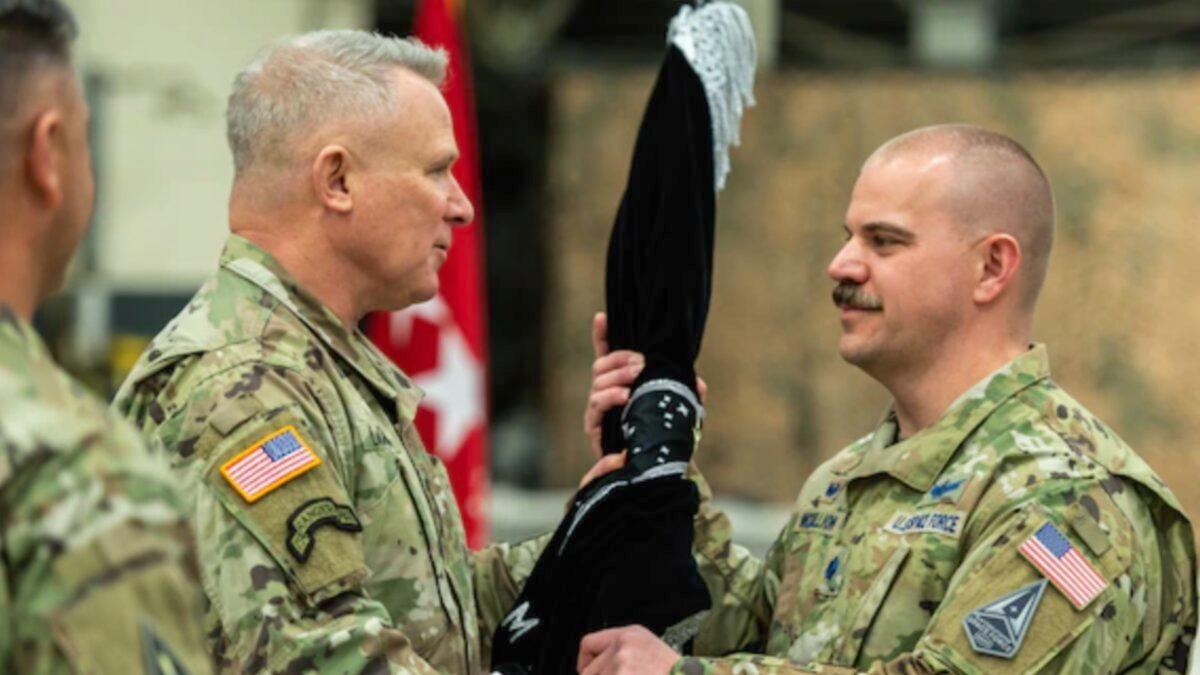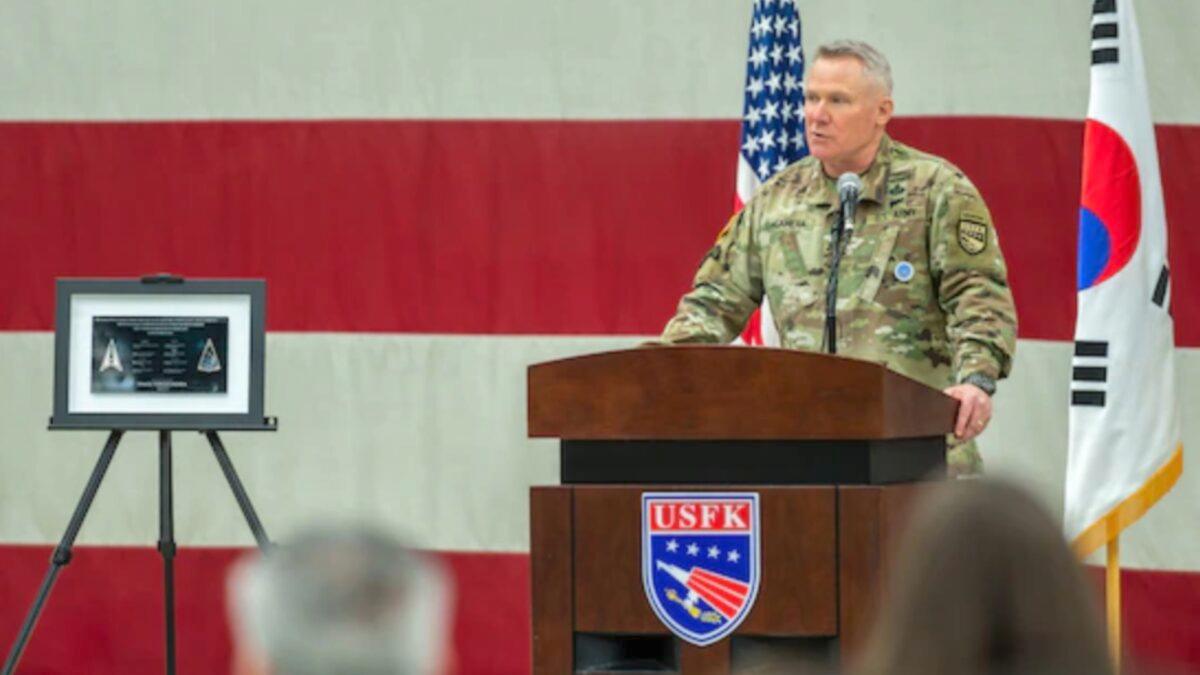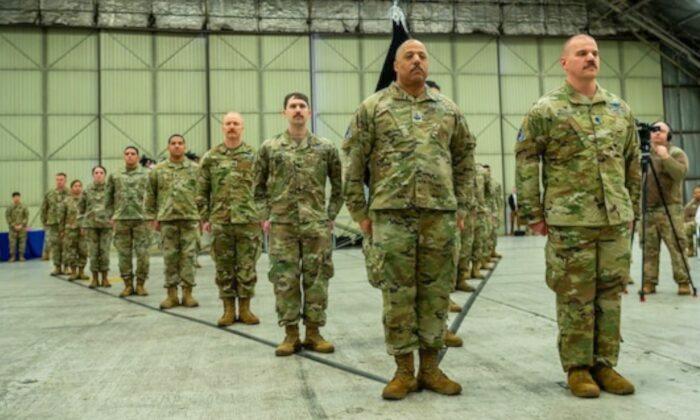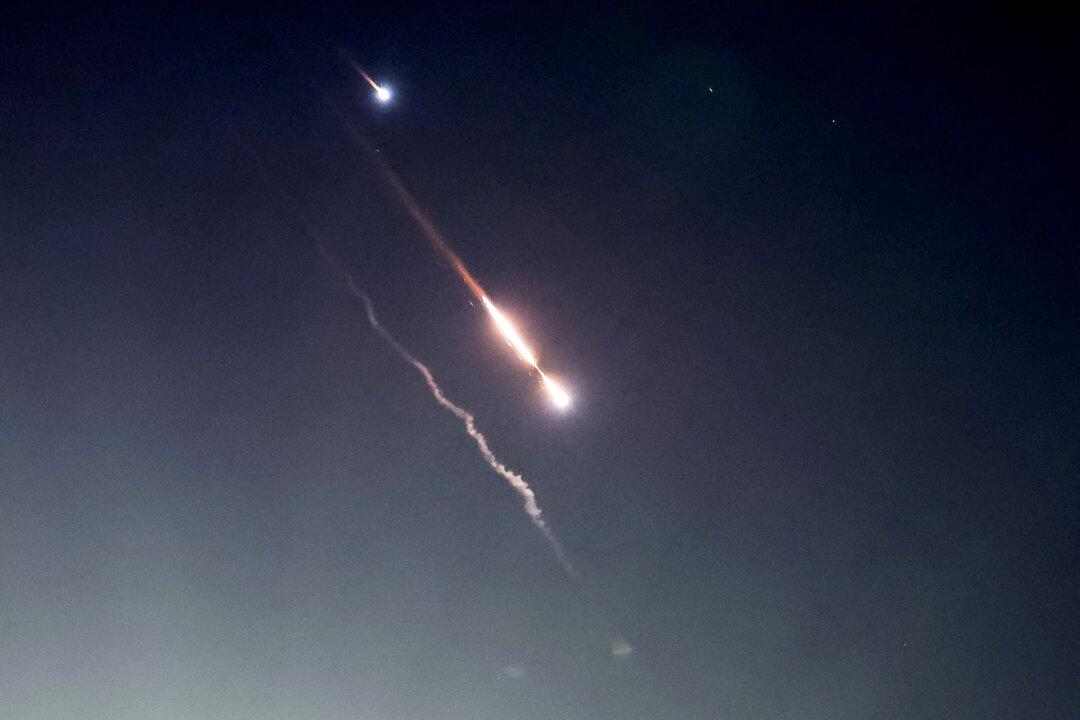The U.S. Space Forces Korea (USSFK) has formed a unit in South Korea as the two allied nations seek to further synchronize space operations in the U.S. Indo-Pacific Command region, the agency has announced.
In 2019, then-President Donald Trump launched the USSF as the first new U.S. military service in more than 70 years.
“Today marks the next milestone in strengthening our ironclad commitment to the U.S.–Korean alliance,” McCullion said during a Dec. 14 event at Osan Air Base in Pyeongtaek, South Korea.
“Our U.S. and Republic of Korea alliance was forged more than 70 years ago, as we stood shoulder-to-shoulder in war. With the world around us evolving, so, too, must we.”

The USSFK will be the first-of-its-kind facility headquartered on foreign soil and the second such command established within the Indo-Pacific Command area.
“Without a doubt, the United States’ ability to synchronize in all domains is unparalleled,” USSF Brig. Gen. Anthony Mastalir said during the Dec. 14 event. Mastalir, who’s the commander of USSF’s command headquartered in Hawaii, said the USSFK is ready to counter any threat in the region.
U.S. Army Gen. Paul LaCamera, who presided over the ceremony, noted that the unit in South Korea will further enhance the U.S. ability to defend the mainland while ensuring “peace and security on the Korean peninsula and in Northeast Asia.”
“The U.S. military is faster, better connected, more informed, precise, and lethal because of space,” LaCamera said.

The USSFK was launched as North Korea test-fired a barrage of nuclear-capable ballistic missiles in recent months that were designed to strike U.S. grounds and those of its allies, South Korea and Japan.
“Just 48 miles north of us exists an existential threat; a threat that we must be prepared to deter, defend against, and—if required—defeat,” McCullion said, apparently referring to North Korea, whose heavily fortified border with South Korea is just an hour’s drive from Seoul, the South Korean capital.
Jung Chang Wook, head of the Korea Defense Study Forum think tank in Seoul, said the USSF was created to bring together diverse surveillance assets, including space-based satellites in one organization to manage and develop them in an effective, systemic manner. He said its unit in South Korea would work like a field unit while the other in the Indo-Pacific Command would be its headquarters.
“The U.S. Space Forces Korea would maintain, operate, and asses related equipment. Simply speaking, I would say the actual U.S. space operations will be done at Osan Air Base,” Jung said.
He said the main role of USSFK would be receiving, processing, and analyzing the tremendous amount of data and information transmitted by U.S. satellites.
Jung said the launch of a space unit in South Korea was likely primarily aimed at better surveilling North Korea, as well as China and Russia.
The United States and South Korea have expanded their regular military drills and pushed to further bolster their combined defense capability in the face of North Korea’s advancing nuclear program. North Korea has threatened to use nuclear weapons preemptively in potential conflicts with the United States and South Korea, and the U.S. military warned North Korea that the use of nuclear weapons “will result in the end of that regime.”






Friends Read Free